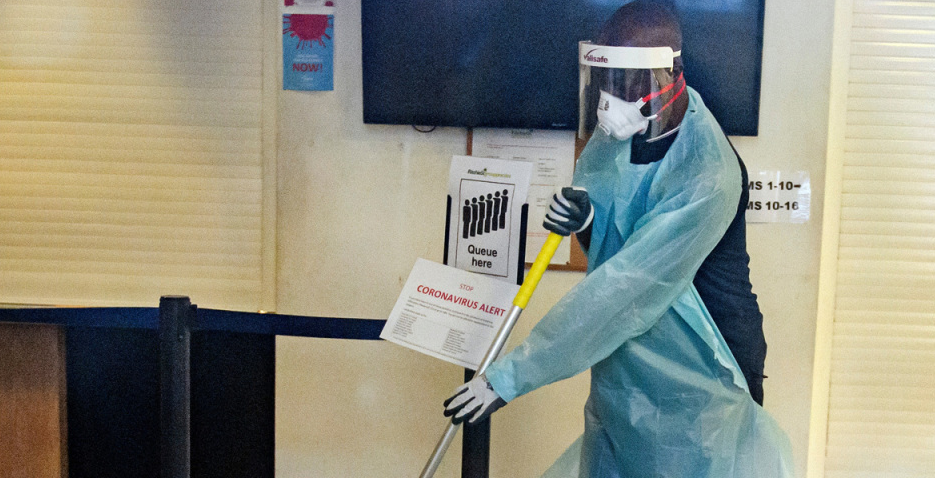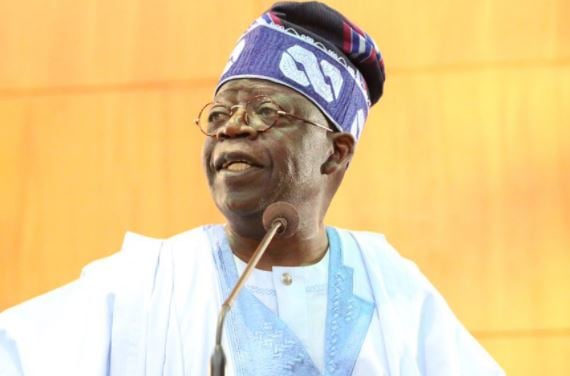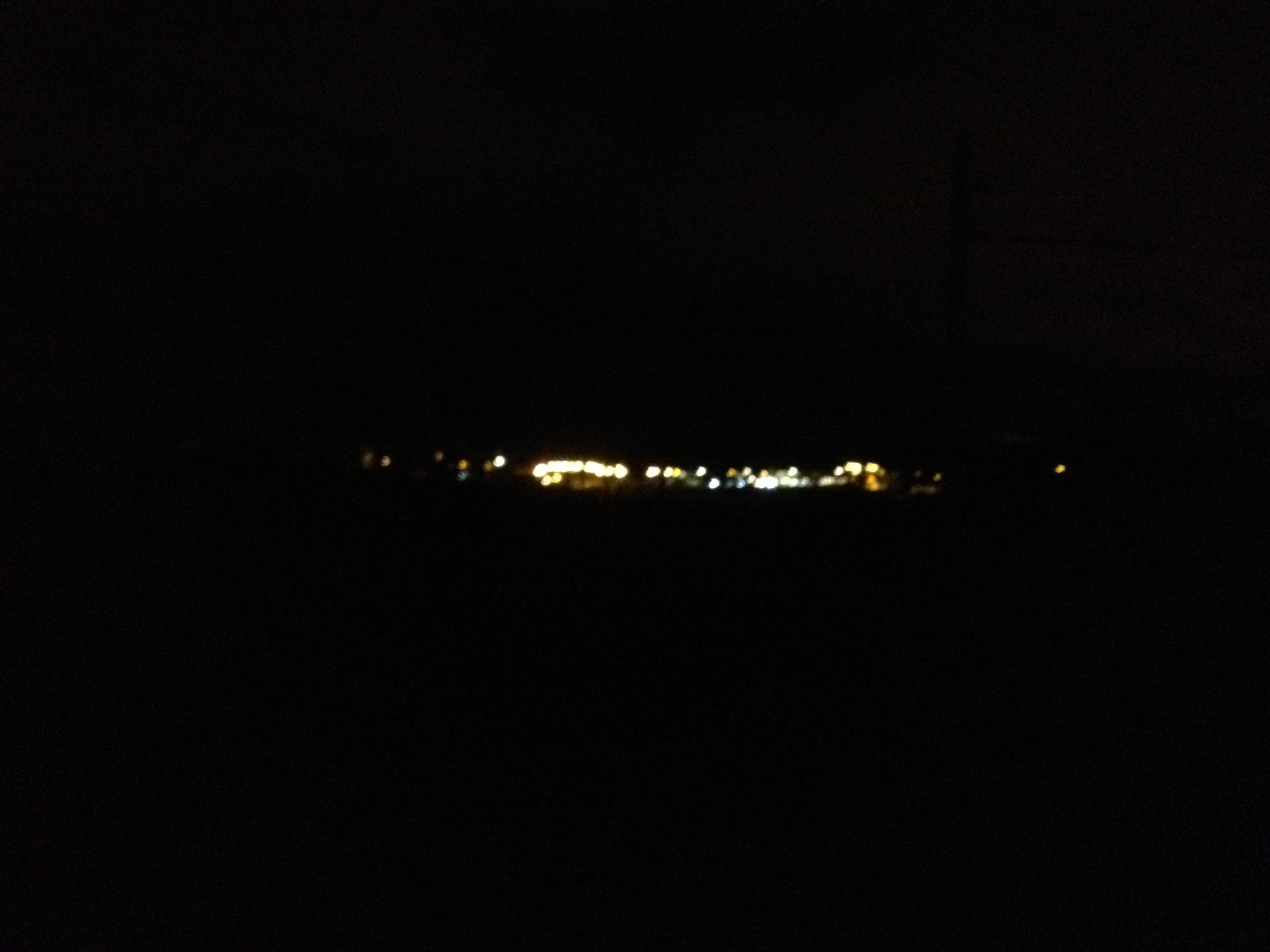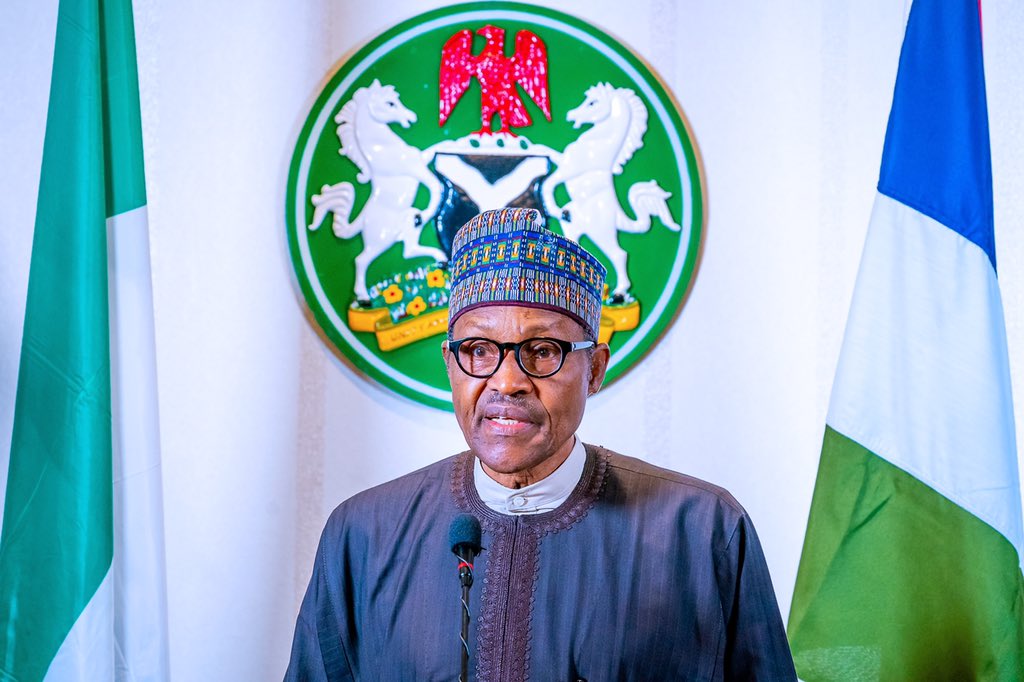BY JUDE ‘FERANMI
In the coming days, we all need to prepare for a nationwide state of emergency, should we fail to curb the spread of the coronavirus in the country. Projected estimates should the virus spread suggest that the only way we would fight a scourge is by total isolation, not even social distancing. This is the lesson we can learn from countries like China, Italy, Singapore and others. But there are issues with total isolation and complete shutdown in a country like Nigeria.
Total Isolation in an economy like ours where more than 80% of the people survive on a daily basis is in itself a catastrophe waiting to happen. Asking anyone who depends on monies made in a day to eat the same day to stop working is akin to asking such a person to choose between hunger and risking the possibility of contracting a virus. In Nigeria, we know what the 80% poor people in our country will likely choose.
It might work for the first few days of persuasion but after a week at most, something will need to happen. Either there is an efficient welfare system of taking care of such people or such people are left to take their destinies into their hands. This is likely where the chaos will begin, unless there is an arrangement for enforcement under a militarised environment that a state of emergency proclamation provides.
Advertisement
Let’s talk about a state of emergency where everywhere is on lockdown and the government tries to trace contacts of the virus until there are no more cases. Italy’s lockdown is currently one month old and counting. How effective will this be in our country?
Do we have enough numbers in our military and police force to enforce a total lockdown on 200 million citizens? Let us say all the markets and public places are locked down and patrol stations are put on the road. Once crime begins to increase across the country owing to people who have to feed one way or the other, will we still have enough numbers to police this crime across the country? Is anyone modelling this on any screen or chart?
In chronological order comes the impact on the economy. Can Nigeria survive a total lockdown of all major economic activity in these days where a barrel of oil now sells for far less than 4 cartons of indomie? Our reserves are down. The demand for oil is low because other countries are shutting down and do not also need to buy our oil in these times and to put a nail in our economic coffin, the importation of goods across the globe has declined with various borders closed allowing only health related imports to come in. So in the event that everyone buys up all the stock of preserved food during the lockdown and it finishes while the lockdown is on, even the rich will find it difficult to re-stock. As I write this, I stood up to check up on what I have stocked up on. My Titus Sardine is a product from Morocco. My Quaker Oats is a product of the UK. The cans of corn beef are made in brazil. Sweet corn is imported from England. My hot dog sauce is stamped by a standard sign that reads Ministerio Da Agricultura, Brasil Inspecionado. I can go on and on and on. Vodka, Wine, Spices, Groundnut Oil, Creams, Soaps e.t.c I bow my head in shame.
Advertisement
Our worst case scenario is an apocalypse that we have no idea how and when it is going to end. The virus spreads. We lock down our cities. Our poor (80%) can’t survive. So they break out. Crime Increases. We call a state of emergency. Our personnel are not enough. The virus continues to spread. Chaos continues. Our economy breaks down. Nothing comes in from the ports. Food insecurity becomes an issue. Even the rich can’t get food they want to pay for. More Chaos. The virus spreads even further. Unlike Ebola, countries can’t help either, because they are busy saving their own people. And on top of all this, WHO just announced protective measures for its workers to treat the virus as an airborne disease. This is a war!
In all of this, even though this already feels like dooms’ day enough, I have not talked about our healthcare system. I wish I didn’t have to think about it. I have three sisters – a nurse, a pharmacist and a doctor – so you understand my family’s position. Those at the frontlines are fighting hard to ensure the virus doesn’t spread. There are already fears that we have lost that battle already and I really wish I wouldn’t have to think about the next stage of the crisis that our ill-prepared healthcare system is about to face. Even countries with functional healthcare systems are battling this crisis and are recording casualties daily. My doctor friend told me the National Hospital in Abuja has only 10 ICU beds. TEN! We can sulk about how we should have invested in our healthcare systems and how even the rich can’t travel abroad for treatment as both India and the UK, their top destinations, are themselves battling the disease or we can start to think about how we survive in the present.
Where do we go from here? We are in a situation where we have little resources, we can’t get help from abroad and we have a lot we are expected to cater for. Do we save the economy or do we save the people? My first thought in situations like this is to take the approach of fire fighters. Find the root source of the fire and take it out. A number of monetary policy measures have been put in place. Some fiscal measures are still being expected. In the case of a full scale outbreak, these measures will not be enough if we intend to tackle every problem. Countries like China, Singapore and Taiwan which have been able to control the spread of the virus have put in place a full surveillance state that monitors everyone using technology. We cannot do that. We don’t have the resources for it. Therefore, a state of emergency should be considered in the instance of a full outbreak. 80% of all resources and all measures should go into improving the healthcare systems in the country, not just in public facilities but in private sector initiatives. We should treat this as though we intend to start an health care tourism industry for the entire African continent after this plague is over.
As though in a war with an external aggressor where we have to survive based on what we can produce internally, we have to look within and create a healthcare industry overnight. This is how we stop the virus and make gains after the pandemic. As an advantage, the ports are closed but not to health care products, so essential machinery or products we cannot afford to produce locally can be sourced even within the current circumstances. My dad is a pharmacist and used to own a pharmaceutical factory, until the ‘Nigerian factor’ shut it down. That shut down is one of hundreds of pharmaceutical factories that have shut down in the last 10 years. The manufacture of health products like face masks, ventilators, protective gears, hospital beds, reagents, testing kits and medicines e.t.c is possible in our country. There are hundreds of pharmacologists whose research papers are wasting away in the shelves above their office and were only useful for getting the coveted doctorate degree so that they can get more pay as lecturers in dysfunctional universities. It is time to pick those research papers up and build innovative healthcare enterprises using their new found knowledge as the foundation. This is a crisis. A life and death crisis BUT it is also a great opportunity to channel our survival instinct into great gain for our country and our people. Didn’t they say necessity is the mother of invention?
Advertisement
We have to fight. And we have to fight hard. The next few months will be critical to our country and indeed the world as a whole. Section 305 of the constitution lays down the instances where the President can call for a state of emergency in the country and while there are a number of reasons that can be relied on in this section, I believe sub section (f) captures it more for me. It gives the President the authority to call for a state of emergency when “there is any other public danger which clearly constitutes a threat to the existence of the Federation”. This is a threat to our country. We should get ready for it and our government should act accordingly.
Jude ‘Feranmi (JFK) is the executive director for To Build A Nation Initiative and convener of Raising New Voices. He can be reached via [email protected]
Views expressed by contributors are strictly personal and not of TheCable.
1 comments







I relish, lead to I found exactly what I was looking for.
You have ended my four day lengthy hunt! God Bless you
man. Have a nice day. Bye